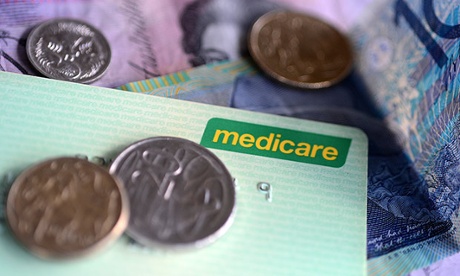Coalition’s plans were put together without any modelling of the impact on emergency departments and prescription use

The Abbott government has not taken into account the impact of its $7 GP fee on hospital emergency departments, nor has it assessed the effect of higher medicine costs on people filling their prescriptions.
Health officials confirmed at a Senate estimates hearing in Canberra on Monday that the department had not prepared modelling on those two potential consequences of the government’s planned health changes.
The government has estimated, however, that the number of people visiting a GP will be 1% lower than it otherwise would have been in the first year of the new co-payment.
The revelations will provide further ammunition for critics who say the government has not properly taken into account the consequences of its budget measures, including a $7 co-payment on visits to the GP from July 2015 and an increase in the existing co-payment on prescription medicines from January 2015.
The government tacitly acknowledged the potential for the GP co-payment to influence hospital attendances by removing the restrictions on state and territory governments from charging patients presenting at hospital emergency departments for GP-like attendances.
But the Greens senator Richard Di Natale asked health officials whether the government had done any modelling work to assess the impact on emergency departments as a result of the co-payment.
“The answer is no,” the deputy health secretary, Kerry Flanagan, told the Senate’s community affairs committee.
She added, however, that the government had looked at evidence surrounding a previous measure – the four-hour target for hospital emergency department access.
This undermined previous fears about hospital emergency departments acting as a possible “honeypot”, Flanagan said, but Di Natale described it as a “completely different scenario”.
Labor and the Greens also questioned officials over the government’s plans to increase the existing pharmaceutical benefits scheme (PBS) co-payments and safety net thresholds from January 2015, delivering the budget $1.3bn over four years.
Co-payments for general patients will increase $5 to $42.70, while the co-payments for concessional patients will increase 80c to $6.90.
The first assistant secretary of the pharmaceutical benefits division, Felicity McNeil, the increase to the general co-payment meant some medicines would no longer be subsidised by the PBS and that was factored into the budget’s forward estimates.
McNeil said 40% of medicines were priced below the general co-payment at present, but the $5 increase combined with impacts of price disclosure would increase this portion to 55%.
Asked whether the government had done any work on the community’s access to medicine, McNeil said: “Only with respect to the value of medicines under the general co-payment.”
The Labor senator Jan McLucas asked: “So you’ve done no modelling about changed behaviour of patients?”
McNeil replied: “No, senator.”
McLucas: “Has anybody?”
McNeil: “Not that I’m aware of, senator.”
Opposition senators said the Pharmacy Guild had raised concerns about possible impacts on patients.
The assistant health minister, Fiona Nash, said the committee should be mindful of the fact the cost of the PBS had risen 80% over the past decade and there was a need for a “sustainable” system.
Nash said people with access to concessions were expected to pay an average of $13.60 extra a year for medicines.
“We would not expect, as I understand it, that to have a significant impact, but I’ll take that on notice if there’s anything further I can add,” Nash said.
The committee heard that key details of the medical research future fund – including the exact types of research that would be eligible for funding – were yet to be decided.
The opposition leader, Bill Shorten, asked Tony Abbott during question time to confirm that policy work on the $20bn fund had not begun until April, one month before the budget.
The prime minister said it was hypocritical for Labor to try “to suggest that somehow a six-week gestation period was inadequate” when it had “cooked up the national broadband network on the back of a coaster on a VIP flight”.
The opposition health spokeswoman, Catherine King, said the policy development process for the medical research fund sounded “more like a script for the Hollowmen than the way an adult government conducts itself”.
The government appears to lack the numbers to secure Senate approval for the GP fee, with Labor, the Greens and Palmer United party all signalling their strong opposition.
Shorten said the GP fee was a “rotten, unfair tax” and Labor would not compromise in Senate negotiations.
